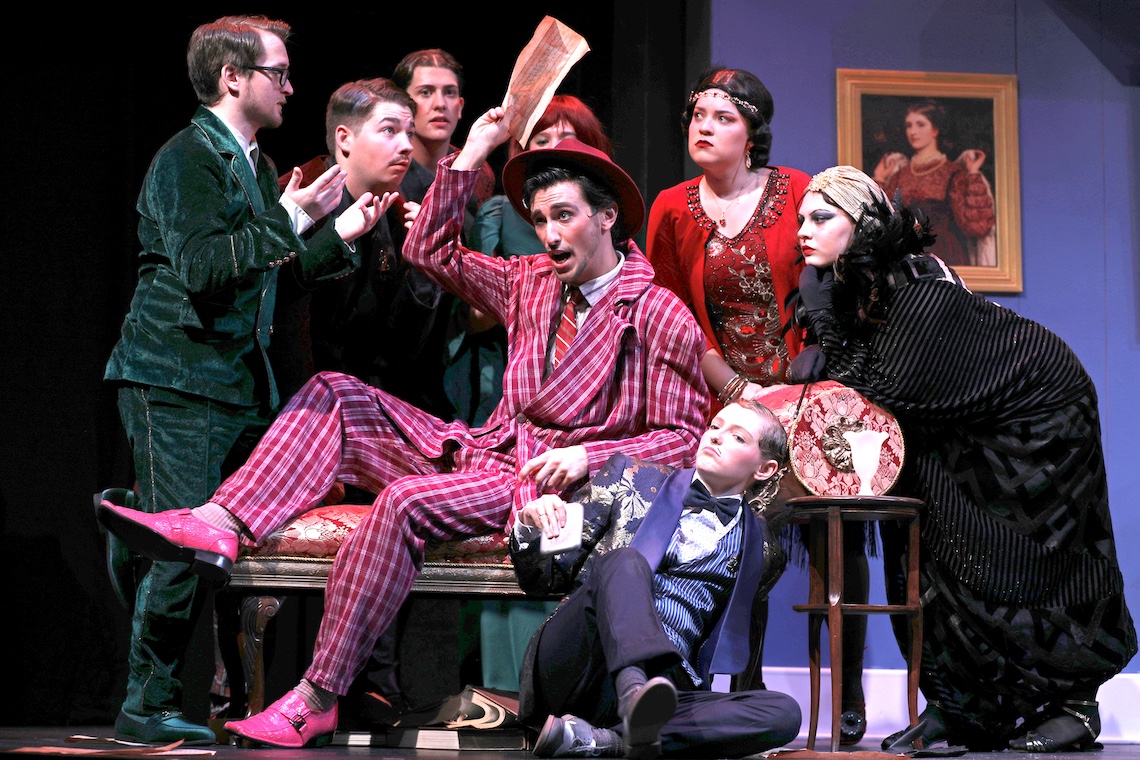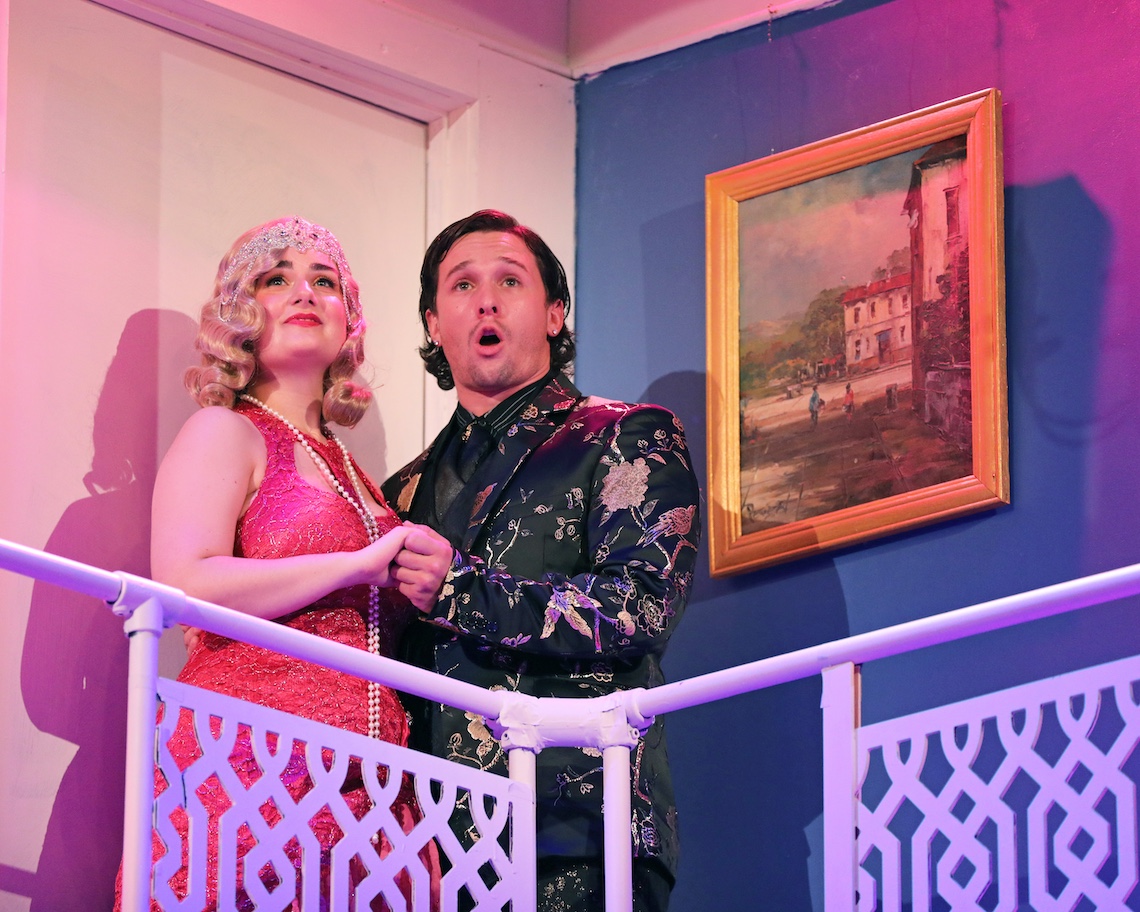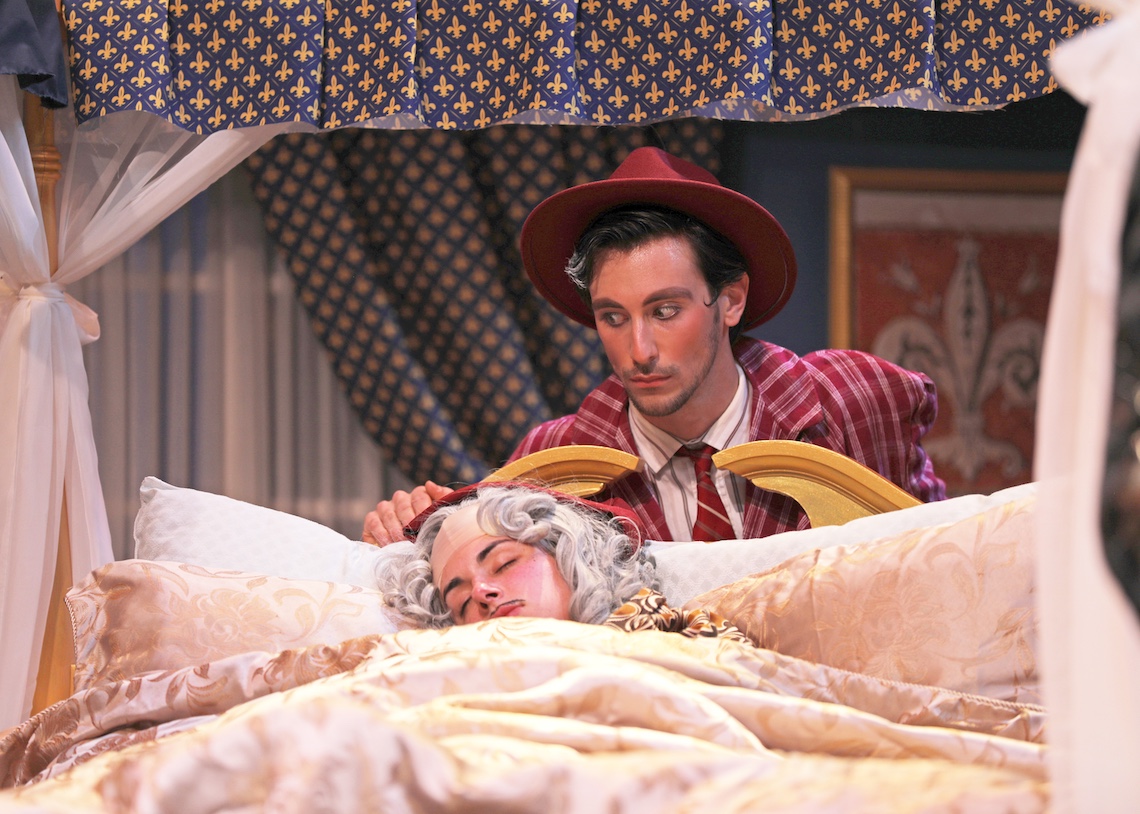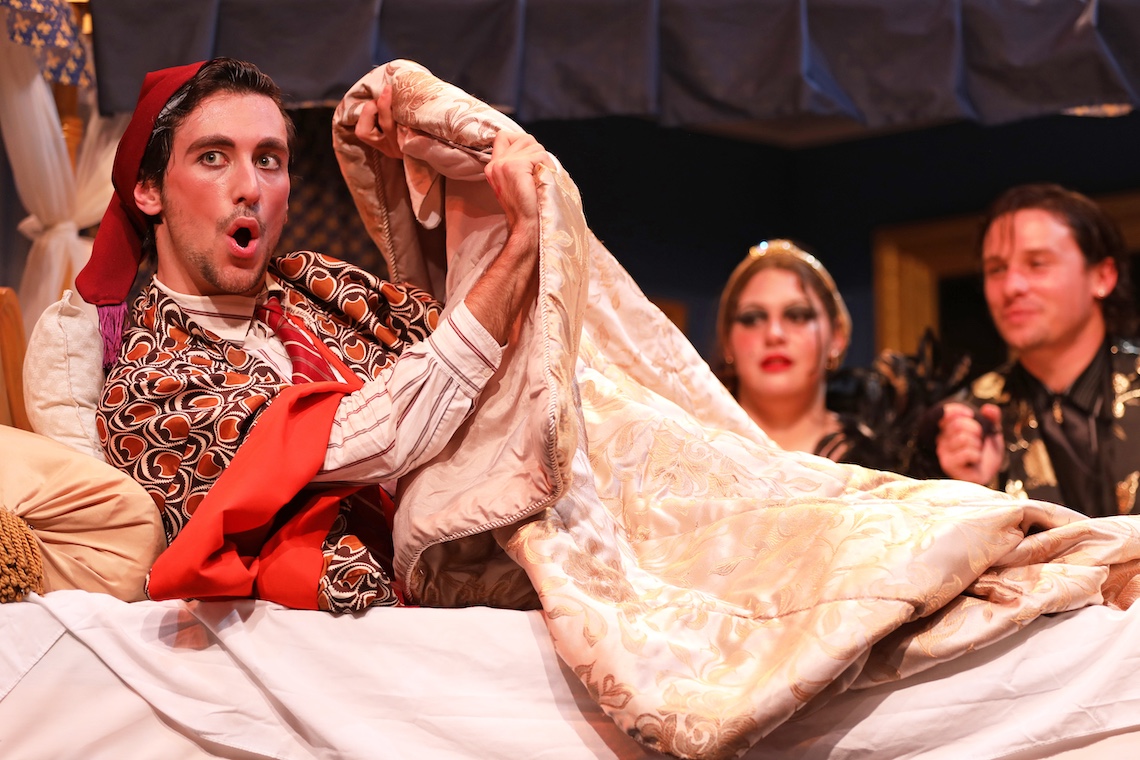
As one of the most beloved arias in all of opera, “O mio babbino caro” requires a high level of technical skill from its singer. But Caroline Woods also has a personal connection to the music that made her performance in “Gianni Schicchi” especially heartfelt.
Woods played Lauretta in a new staging of the classic opera, produced jointly by the University of Southern Maine’s Department of Theatre and the Osher School of Music. It ran November 21-24 at Russell Hall in Gorham.
Woods is studying toward a master’s degree in Vocal Pedagogy. She almost gave up on that goal several years ago. “O mio babbino caro” helped renew her interest. It was her audition song for a master class in New York City. She got into the class and fell in love with singing all over again. Her role in “Gianni Schicchi” let her share that joy with the local audience.
“Whether I bring something new to it, I don’t know,” Woods said. “But it means so much to me that I really do feel everything in this piece when I sing it.”
The aria is crucial to the plot, which begins with the death of Buoso Donati. His family is outraged to learn that he left his fortune but to a monastery. They hire Gianni Schicchi to falsify the will and restore their inheritance. Schicchi plans to double-cross them and keep the money for himself until his daughter, Lauretta, inspires a change of heart.

The earnestness of Lauretta’s aria is so affecting because it contrasts with the show’s pervading mood of silliness. Giacomo Puccini wrote “Gianni Schicchi” in 1918 as a comic antidote to the misery of World War I.
The idea came to Puccini from a passage in “The Divine Comedy.” In keeping with the source material, he set the opera in medieval Florence. USM’s production shifted the time period to the 1920s. The flashy costumes reflected Jazz Age party culture.
Jared Vigue cut a dashing figure to play Lauretta’s love interest, Rinuccio. He’s a fifth-year senior majoring in Classical Vocal Performance. Some actors play Rinuccio as a heartsick puppy, but Vigue struck a more swaggering tone. Dressed in a dark suit with accents of gold embroidery, his clothes fit his personality.
“This is actually pretty tame compared to what some people are wearing up there,” Vigue said. “It’s very Gatsby. It fits the bigness of opera.”
Even surrounded by so many eye-popping costumes, Gianni Schicchi stood out from the crowd in a purple zoot suit that looked like it was borrowed from the Joker’s closet. He has a talent for reading people to get whatever he wants out of them. Nick Sutton played the role with the confidence it demands.

That confidence was earned through intensive training under the guidance of Dr. Malinda Haslett. She is both the director of the show and director of vocal studies at the Osher School. Hitting all the right notes was only part of the challenge she set for her cast. They also had to sing entirely in Italian.
Until recently, English translations were the standard for operas at USM, including a previous production of “Gianni Schicchi” in 2009. The current production limited English to surtitles that scrolled across a screen above the stage. Most of the cast had never spoken Italian before and took pride in their effort to learn it.
“They get deeper and deeper into the text,” Haslett said. “They do the translation, they study, they memorize it. And then they make it part of themselves. It’s been really gratifying to see them walk around campus and hear them in the hallways quoting the show.”
The combination of speaking a foreign language, while also acting and singing is taxing on the mind and body. Performers aren’t wired with microphones, so they rely on lung power to project their voices. At roughly an hour in length, “Gianni Schicchi” is relatively short, but it was still an endurance test for Vigue, coming off a six-year hiatus from the opera stage.
“It’s like doing a max deadlift or the final two minutes of a football game,” Vigue said. “It takes all of your focus and all of your heart to do, and I love that. It really feels like an emotional release when you sing a moment like that in opera.”

Woods was able to pace her vocal exertions. She and Karoline Brechter shared the role of Lauretta in alternating performances over the four-show run. Even on her off days, Woods stayed involved by donning a wig and fake mustache to play the late Buoso Donati. The corpse remains on stage for most of the show as the centerpiece to the action.
“It’s fun. I get to lay in a comfy bed and play dead,” Woods said. “There’s a cute little scene where they waltz my body up the stairs, and I get thrown out the back door.”
Haslett thought up that scene as a funny way to dispose of the body. The 1920s setting was also her idea. Whatever she asked of her cast, they rallied to bring her vision to life. The pride that Haslett feels for them extends beyond their time together on “Gianni Schicchi.”
“We have people here who want to be educators, want to teach K-12,” Haslett said. “We have people on stage who want to be arts administrators or performers or backpack across Europe. They’re all quite special as human beings, as well.”

